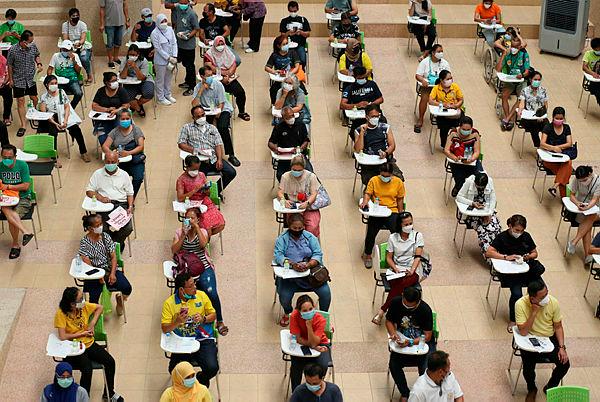PETALING JAYA: Malaysia is grappling with male overpopulation, which has significant implications for societal issues, said Universiti Malaysia Kelantan sociology and anthropology senior lecturer Dr Suraya Sukri.
“It could lead to cultural shifts, family structure changes, social turmoil and economic implications, which pose challenges to education, careers, government policies, cultural evolution and adaptations to the changing demographic landscape.”
In a 2020 census, the Statistics Department reported that the male population outnumbered females at a ratio of 110:100.
The department said there were 17 million males and 15.7 million females last year, adding that the gender ratio among citizens remained at around 103 males for every 100 females, while it was 227 males for every 100 females among non-citizens.
The higher number of males is primarily attributed to the proportion of males among non-citizens. Considering this, Suraya said the gender imbalance may contribute to social issues such as crime and unrest.
“There is a correlation between gender imbalances and certain types of crime, as well as social unrest due to frustration among the male population.
“Gender-based discrimination and violence may also become more prevalent in societies with a surplus of males.”
Suraya said in terms of economic consequences, this phenomenon might lead to workforce imbalances and subsequent social and economic inequalities.
“Certain industries or regions may see a higher concentration of males, affecting the distribution of resources and opportunities.
“This increased competition for resources such as jobs, housing and education could also put pressure on the job market and educational institutions, potentially impacting the quality of life for both genders.”
Suraya said to overcome this, the government may face challenges in formulating policies to address the social and economic impacts of the gender imbalance.
“Effective strategies to balance gender disparities and promote equality can be complex and require comprehensive approaches,” she said.
Supporting the call, clinical psychologist Dr Ainul Azreen Muhammad Johari said the phenomenon could impact one’s mental health.
“Individuals facing difficulty in finding employment or establishing stable relationships may experience increased stress and mental health challenges.”
She said it may become difficult to find suitable partners due to the higher number of males. This could impact marriage rates and the family formation, with implications for social stability and individual well-being.
“It could exacerbate societal expectations and pressures on men and lead to changes in traditional family structures.”
Ainul Azreen also said social integration issues could arise from increased migration and mobility as people move in search of better opportunities, which could affect community cohesion and stability.
On gender imbalance, she said the abortion of female foetuses could also be a factor.
“The world at large has a cultural preference for male children and sex-selective practices. Access to advanced technology for gender determination could lead to selective abortions, particularly for female foetuses.
She said the government needs to address male overpopulation to ensure a more equitable society.
“The government should take immediate action on private clinics that offer (such) abortions. This way, we can promote gender equality and ensure equal opportunities for all citizens.”
Ainul Azreen said to dispel preconceptions, it is critical to educate the public about the contributions and advantages that women provide to society.
“It is essential to invest in initiatives aimed at challenging traditional gender roles and stereotypes to foster a more inclusive society.”









